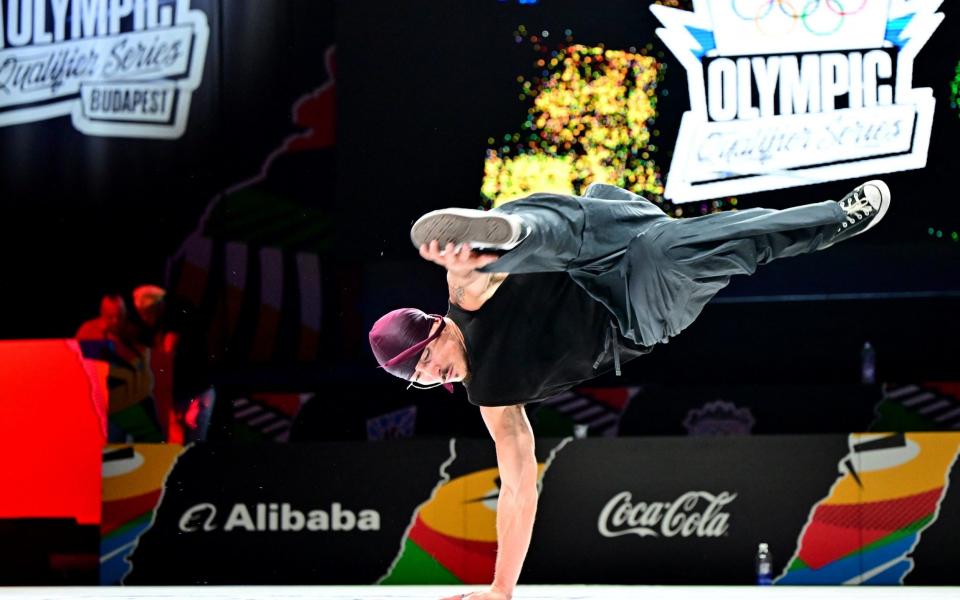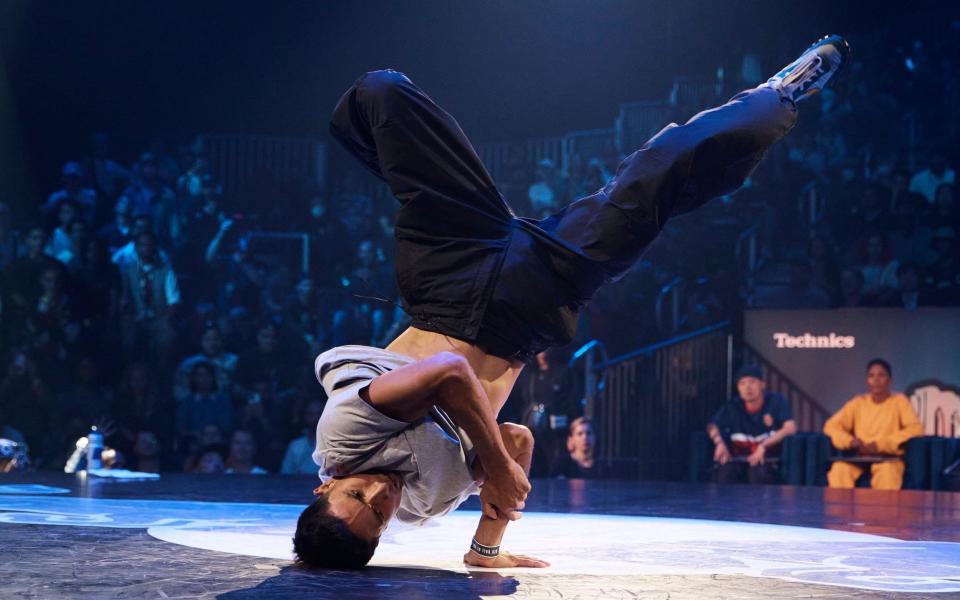The Olympics gets a brand new sport this summer in the form of breakdancing – or breaking, as it will be known at the Olympics.
Originating in the Bronx borough of New York in the late 1970s, and considered part of the “four elements” of hip-hop, alongside rapping, graffiti and DJing, it comprises crews aiming to out-do each other with acrobatic dance moves set to music.
Its soaring popularity, with international competitions first held in the 1990s, eventually did not go unmissed either by the International Olympic Committee either, keen to reach new and younger audiences.
Despite the wrath of Games traditionalists, breaking’s inclusion on the programme for the 2018 Youth Olympic Games in Buenos Aires was met with widespread acclaim, and now the sport makes its main bow in Paris.
When and where is breaking at the Paris Olympics?
The breaking competitions take place at the Place de la Concorde, Paris, site for the newer, urban Olympic sports.
The women’s competition will take place on Friday August 9 with the men’s event a day later on Saturday, August 10.
For the full Paris 2024 Olympic Games schedule, click here.
What is the competition format?
Both men’s and women’s events will see 16 b-boys and 16 b-girls competing against each other to be crowned individual champions.
One-on-one competitive dance matchups are known as battles, with each battle divided into best of three rounds, called throwdowns.
Each throwdown begins when a breaker (individual) starts their performance, which can last up to 60 seconds, with the opposing breaker then responding with their own throwdown. Each competitor performs to music of the live DJ’s choosing, with each round judged.
Each set of 16 breakers will be divided into four groups of four participants, competing in an initial round-robin stage, with the two group winners advancing to straight knock-outs in the form of quarter-finals, semi-finals and then bronze and gold medal battles.


What are the three elements of breaking?
Top rock – moves performed by the breaker while still standing.
Down rock – moves and spins composed by the breaker while on the floor
Freeze – when a breaker holds a pose in an unusual position during their performance, an example being a headstand
How is breaking judged?
A five-strong judging panel score each battle based on technique, vocabulary, execution, musicality and originality, with each category accounting for 20 per cent of the final score.
The winner is the competitor who wins the majority of the three-round battle, with judges using a digital, real-time slider to score the battles.
Judges also have three misbehavior buttons they may use to penalise a breaker when they act or gesture inappropriately.
Any Brits to look out for?
There will be no British involvement for breaking’s Olympics debut with no b-boys or b-girls qualifying for the Games.
Who are the favourites?
For the women, keep an eye out for Lithuania’s Dominika Banevič, (nickname Nicka), and Japan’s Ayumi Fukushima (nickname Ayumi) after the two battled it out in last year’s World Breaking Championship final. Banevič, who also claimed European gold earlier in the year, took the title, while bronze went to France’s Sya Dembélé (nickname Syssy).
For the men, American Victor Montalvo (nickname Victor) is the current world champion, beating Canada’s Philip Kim (Phil Wizard) into silver, while Shigeyuki Nakarai (nickname Shigekix) took bronze.
Who is competing?


16 b-girls
-
Dominika Banevič (Lithuania) – nickname: Nicka
-
Sunny Choi (US) – nickname: Sunny
-
Fatima Zahra El-Mamouny (Morocco) – nickname: Elmamouny
-
India Sardjoe (Netherlands) – nickname: India
-
Liu Qingyi (China) – nickname: 671
-
Rachael Gunn (Australia) – nickname: Raygun
-
Ami Yuasa (Japan) – nickname: Ami
-
Ayumi Fukushima, (Japan) – nickname: Ayumi
-
Sya Dembélé (France) – nickname: Syssy
-
Logan Elanna Edra (US) – nickname: Logistx
-
Zeng Yingying (China) – nickname: Yingzi
-
Kateryna Pavlenko (Ukraine) – nickname: Kate
-
Antilai Sandrini (Italy) – nickname: Anti
-
Vanessa Cartaxo (Portugal) – nickname: Vanessa
-
Anna Ponomarenko (Ukraine) – nickname: Stefani
-
Manizha Talash (Refugee Olympic Team) – nickname: Talash
-
Carlota Dudek (France)* – nickname: Senorita Carlota
*reserve
16 b-boys
-
Victor Montalvo, (US) – nickname: Victor
-
Bilal Mallakh, (Morocco) – nickname: Billy
-
Danis Civil, (France) – nickname: Dany Dann
-
Jeffrey Dan Arpie Dunne (Australia) – nickname: J Attack
-
Philip Kim, (Canada) – nickname: Phil Wizard
-
Shigeyuki Nakarai, (Japan) – nickname: Shigekix
-
Lee-Lou Demierre, (Netherlands) – nickname: Lee
-
Kim Hongyul, (South Korea) – nickname: Hongten
-
Hiroto Ono, (Japan) – nickname: Hiro10
-
Qi Xiangyu, (China) – nickname: Lithe-ing
-
Jeffrey Louis, (US) – nickname: Jeffro
-
Amir Zakirov, (Kazakhstan) – nickname: Amir
-
Menno Van Gorp, (Netherlands) – nickname: Menno
-
Sun Chen, (Chinese Taipei) – nickname: Quake
-
Oleg Kuznietsov, (Ukraine) – nickname: Kuzya
-
Gaëtan Alin, (France)* – nickname: Lagaet
*reserve
Source Agencies

